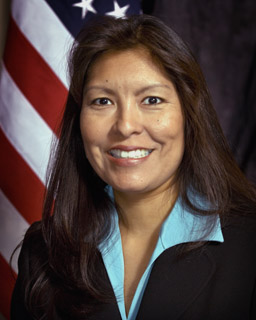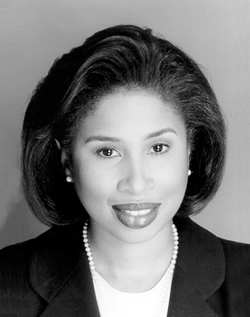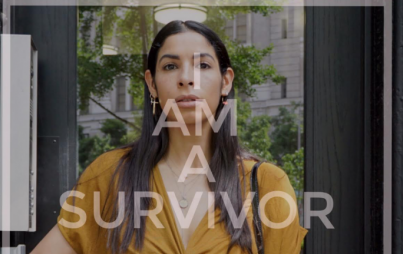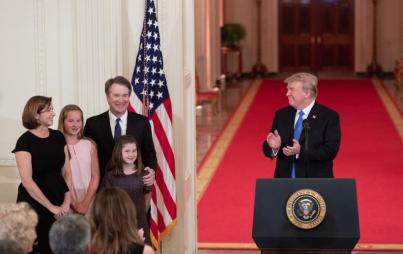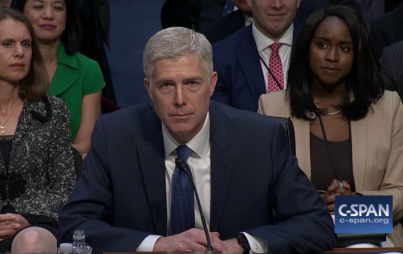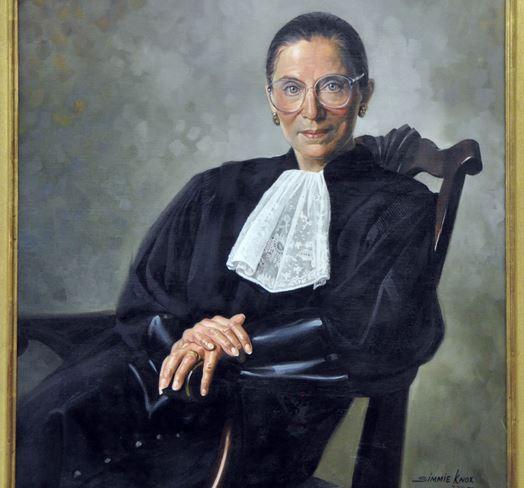
A portrait of Ruth Bader Ginsburg we definitely want hanging on our wall (Credit: Wikimedia Commons)
When you're one of the most respected members of the U.S. Supreme Court—nay, one of the most respected women anywhere, period—you have some leeway to call it like it is. Which is precisely what Ruth Bader Ginsburg has done, telling NPR over the weekend that she believes there should be an all-female SCOTUS bench.
Is this a radical notion? Considering how male-dominated the Supreme Court has long been, yes. Is this an outlandish notion? It shouldn't be. The number of female justices has been climbing steadily; nearly 35% of the active judges on the federal courts of appeal, and 32% of U.S. district (or trial) court judges, are women.
While not anything to write home about, these numbers are significantly more impressive than the breakdown for the highest court in the land, where just 3.5% of the justices (four of 112) have ever been female. An all-female court would hardly put a dent in these overall historic demographics, and as Ginsbrg pointed out:
“For most of the country’s history, there were nine and they were all men. Nobody thought that was strange."
(Did we mention we love Ruth Bader Ginsburg?)
Let's pretend we live in an alternate universe in which an all-woman court is totally possible. This would be a world in which there wouldn't be a need for the female justice minority to write a 16-page dissent lamenting the Hobby Lobby ruling; a world free of a regular deluge of decisions hindering progress on women's issues such as equal pay, medical leave and contraception.
We did some digging, and found six women currently serving in high-powered judicial roles who could join the existing female justices (Sonia Sotomayor, Elena Kagan and Ginsburg) to create a dream bench.
Ginsburg, we got you girl.
Diane Humetewa
In May, the U.S. Senate confirmed the appointment of Humetewa, a Hopi, as the first Native American woman to ever serve as a U.S. District Court Judge. Humetewa is a former U.S. attorney for the District of Arizona and has also been a judge for the Hopi tribe. She would, of course, also be the first Native American SCOTUS judge—and last we checked, this demographic, too, is impacted by SCOTUS decisions.
Geraldine Hines
Citing her “intelligence, grace and life experience,” Massachusetts governor Deval Patrick nominated Hines, an Appeals Court Judge, to serve on the Supreme Judicial Court this June.
Patrick had this to say about the justice who's also been active with the ACLU, National Lawyers Guild and National Conference of Black Lawyers, and who was a founding member of the first African-American women's law firm in New England:
“At both the Superior Court and the Appeals Court, she’s been a beloved and respected colleague, praised by judges and lawyers alike, for being smart, prepared, fair, tough, decisive, warm, thoughtful and gentle. All at the same time.”
Hines, who grew up in the segregated South, would be the first black female judge to serve on the Supreme Court—where, last we checked, cases pertaining to that demographic also, totally cross the SCOTUS desk.
Sharon Prost
This May, Prost assumed her role as Chief Circuit Judge for the U.S. Court of Appeals, which has nationwide jurisdiction over everything from international trade and veterans' benefits to government contracts and patents. She's also served in the Department of Treasury, National Labor Relations Board and General Accounting Office.
And lest you think we're going for an all-left-leaning bench, she was appointed by George W. Bush.
Anna Blackburne-Rigsby
In addition to serving as a judge on the District of Columbia Court of Appeals in Washington, DC, Blackburne-Rigsby is the current president of the National Association for Women Judges (NAWJ), dedicated to promoting the "judicial role of protecting the rights of individuals under the rule of law through strong, committed, diverse judicial leadership, fairness and equality in the courts, and equal access to justice."
Joan Dempsey Klein
The co-founder and first president of NAWJ is a judge of the U.S. Court of International Trade. She's also served as a member of the advisory committee for the National Judicial Education program to Promote Equality for women and men in the courts.
Amal Alamuddin
Yes, as in the new Mrs. Clooney. And yes, she's British, not American. But this is our dream bench and we can do what we want, damnit. Alamuddin, a high-powered lawyer specializing in international law and human rights, certainly has the chops for SCOTUS. And imagine how much people would start paying attention to the Supreme Court bench, and all the influential decisions it makes, if a glamorous A-lister was donning one of its esteemed robes.
An all-female SCOTUS bench the public actually pays attention to?
Like we said, we can dream.

